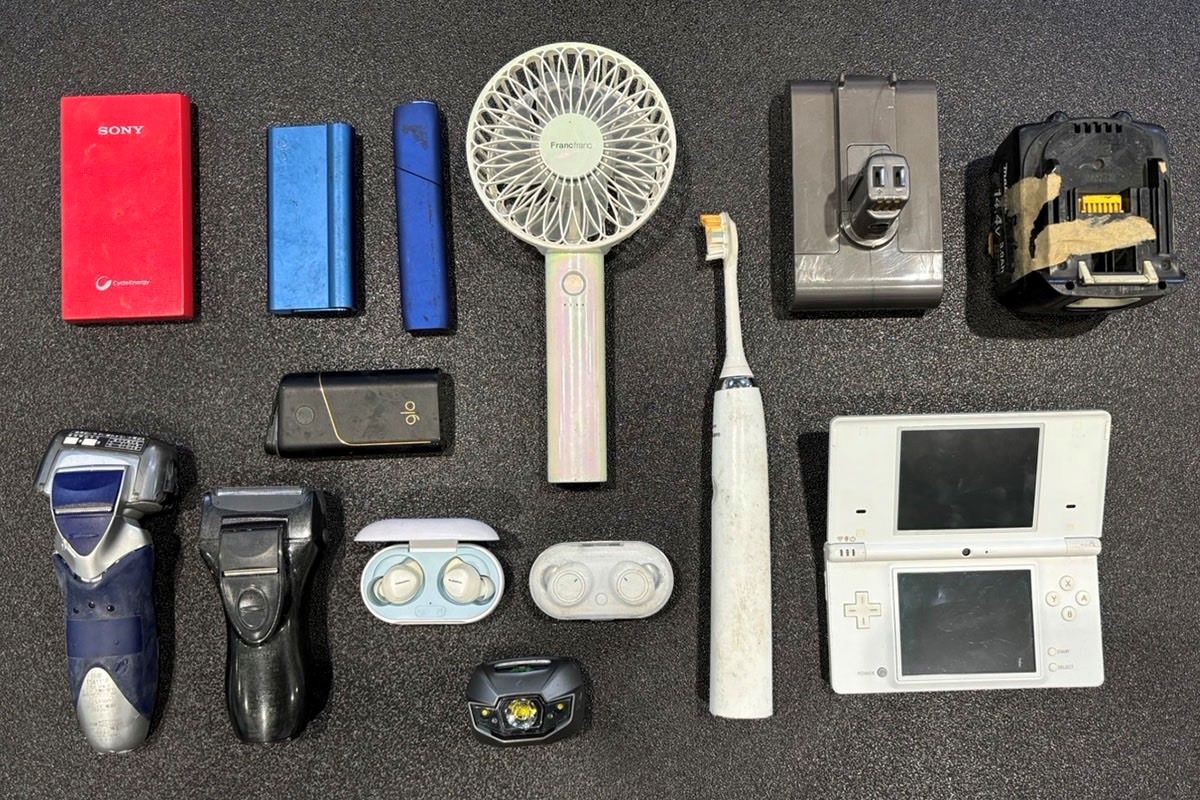Lithium-ion Batteries: Ensuring Safe and Sustainable Use of an Essential Technology
パソコンやスマホ、ワイヤレスイヤホンなどに幅広く使われ、私たちの生活に欠かせない便利なリチウムイオン電池ですが、回収時に火災の要因になっているといいます。様々な問題が横たわっているようですが、解決するために私たちにできることを考えてみませんか?

1.Article
Directions: Read the following article aloud.
※本ページは出典ニュース記事を要約した英文です。
The competition featured two categories. Theme 1 focused on LIB detection devices, while Theme 2 explored mechanisms to prevent or neutralize ignition risks.
Otani Seiun, a Japan 2 Earth partner, competed in Theme 1 and secured third place. Alongside national research institutions and universities, the finalists included companies specializing in machinery, electrical engineering, and measurement. Despite being a waste processing company, Otani Seiun took pride in holding its own against such formidable competitors.
Otani Seiun's decision to pursue this development was inspired by words from its president, Reiko Futagi. On May 15, 2021, my first day as an advisor, she told me that exactly one year earlier, a fire caused by a LIB had broken out at the company's second plant.
"Local residents told me, 'Otani, don't let there be a next time.' Since then, we've appealed to the relevant authorities, but the issue [of proper LIB disposal] remains unresolved. We need to take action," President Futagi recounted.
My guiding principle has always been to seek new challenges, exciting ideas, and meaningful work. Her words moved me. I proposed developing our own [LIB] detection device.
Coincidentally, May 15 was also my birthday, which felt like fate. With a shared commitment to protecting the local community, President Futagi and the board unanimously agreed to fund the company's first-ever technology development initiative.
Two years later in 2023, working with Otani Seiun and its dedicated team, we successfully proved that LIBs can be detected using X-ray imaging combined with artificial intelligence (AI). This led to the finalization of the system's design.
With government subsidies secured, we pushed forward with commercialization. In March 2024, we completed the device and named it the "OSLiB Sorter."
This new system features AI-driven learning capabilities, which allow it to improve detection accuracy, even after installation. Users can easily customize detection settings to meet their specific needs, ensuring greater flexibility.
In addition to detecting LIBs and devices housing them, it can also recover circuit boards and other valuable materials. This process is often referred to as urban mining. The system's adaptability was a key factor in its recognition in the competition.
LIBs were first commercialized in Japan in 1991. Today, they are essential to daily life, powering laptops, smartphones, wireless earphones, and countless other electronic devices. The scientist behind this groundbreaking technology, Akira Yoshino, was awarded the 2019 Nobel Prize in Chemistry.
Despite their benefits, there are several significant challenges associated with LIBs.
One major issue is the lack of an established collection system and inadequate recycling technology. LIBs are often improperly discarded, mixed with plastic waste or bulk trash. This has led to frequent fires in garbage collection trucks, waste processing facilities, and recycling plants.
In November 2023, a fire caused by a LIB broke out at Tokyo Central Breakwater Landfill's facility for pulverizing bulky waste, disrupting waste collection for an extended period. More recently, a fire at a waste processing facility in Moriya, Ibaraki Prefecture, remains fresh in memory. According to the Tokyo Fire Department, 107 fires linked to LIB-containing products occurred between January and June 2024 alone.
Another critical challenge is ethically securing resources such as lithium, cobalt, and nickel, that are essential for LIB production. For example, the Democratic Republic of the Congo is the world's leading cobalt producer. However, it faces mineral conflicts and child labor issues. It is therefore important to block the export of used products containing LIBs and establish a domestic supply chain to recycle these resources.
Recently, I spoke with a researcher who worked alongside Akira Yoshino in developing LIBs. He shared that they had patiently developed fire prevention measures and safety standards before releasing LIBs for commercial use. They were deeply concerned he added, over the rising number of fires caused by LIBs today.
The LIB market continues to expand. However, despite being a Japanese invention, most LIB products are now manufactured overseas. Whether these foreign manufacturers uphold the safety standards established in Japan remains highly uncertain. In fact, a majority of LIB-related fires are caused by low-cost imports.
The safe and reliable use of LIB products requires collaboration among the government, local authorities, manufacturers, consumers, and those involved in resource recycling. Clear labeling on products containing LIBs and establishing well-defined collection routes are essential.
Public awareness must also be raised to strengthen responsible recycling. Advancing these efforts can help us build a sustainable system for LIB reuse and recycling.
Hopefully, the NEDO initiative will catalyze solving these pressing societal challenges.
本教材は、一般社団法人ジャパンフォワード推進機構、株式会社産経デジタルより許諾を得て、産経ヒューマンラーニング株式会社が編集しています。
テキストの無断転載・無断使用を固く禁じます 。

